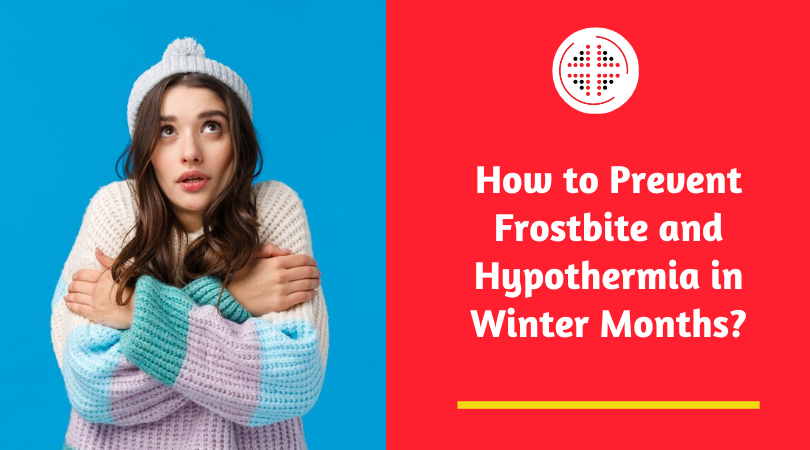


Winter months can lead to serious health risks, notably frostbite and hypothermia. Frostbite occurs when skin and tissue freeze due to exposure to extreme cold, resulting in numbness, discoloration, and tissue damage. Hypothermia sets in when the body loses heat faster than it can produce, causing symptoms like shivering, confusion, and weakness. It's important to differentiate between the two: frostbite affects specific areas, while hypothermia impacts the entire body. Research from the National Library of Medicine shows that conditions like frostbite and hypothermia occur more often in men than women and decrease in frequency over age 65.
The blog will shed light on the critical aspects of frostbite and hypothermia, providing a detailed understanding of how to overcome these chilling conditions effectively. So, keep reading to learn more about frostbite and hypothermia.
Frostbite is a cold-related injury when extreme cold causes skin and tissues to freeze, mainly in areas like fingers, toes, nose, ears, and cheeks. When it's cold, our body limits blood flow to keep vital organs warm, making these areas vulnerable. Early signs include skin turning pale or red, feeling cold, and progressing to numbness, hardness, and blisters.
Certain factors increase the risk, such as poor circulation, smoking, diabetes, certain medications, and prolonged exposure to cold in jobs or activities. Awareness of these signs and risk factors is crucial to prevent severe damage from frostbite.
Hypothermia occurs when the body loses heat faster than it can produce it, leading to an extremely low body temperature. In cold weather or water, the body's temperature drops below average, causing shivering, confusion, and weakness. As it worsens, hypothermia can affect coordination and mental clarity, posing severe health risks. Immediate warming and medical attention are crucial. Dress warm, seek shelter, and stay dry are key preventive measures. Understanding its symptoms, especially in cold environments, is vital for prompt action to prevent life-threatening complications associated with hypothermia.
Recognizing the symptoms of frostbite and hypothermia is important in the winter months. Here are the vital symptoms to look out for:
|
Symptoms |
Frostbite |
Hypothermia |
|
Skin appearance |
Pale, cold, numb, hard, waxy |
Shivering, cold skin, clumsiness, confusion |
|
Sensations |
Tingling, burning, lack of feeling in the area |
Exhaustion, drowsiness, slurred speech |
|
Severity |
Redness, blistering, and tissue damage are possible |
Shivering, disorientation, unconsciousness |
|
Affected areas |
Extremities (fingers, toes, nose, ears) |
The entire body, especially the core temperature |
|
Treatment |
Gradual warming, medical attention if severe |
Remove wet clothing and warm beverages and seek help |
Knowing the different stages of frostbite and hypothermia is important. It helps recognize and address these cold-related conditions.
Prevention is always better than cure! Here are some practical measures that will help you stay safe and warm.
If symptoms persist or worsen, it's imperative to seek urgent care. Professional evaluation ensures appropriate treatment and minimizes the risk of long-term complications associated with frostbite or hypothermia.
Don't let frostbite or hypothermia become severe. Seek medical help now to prevent complications. At MI Express Urgent Care, we offer thorough treatment for these conditions. Our expert team provides immediate care to prevent further problems. Contact us today for relief and to ensure your well-being throughout the winter months.